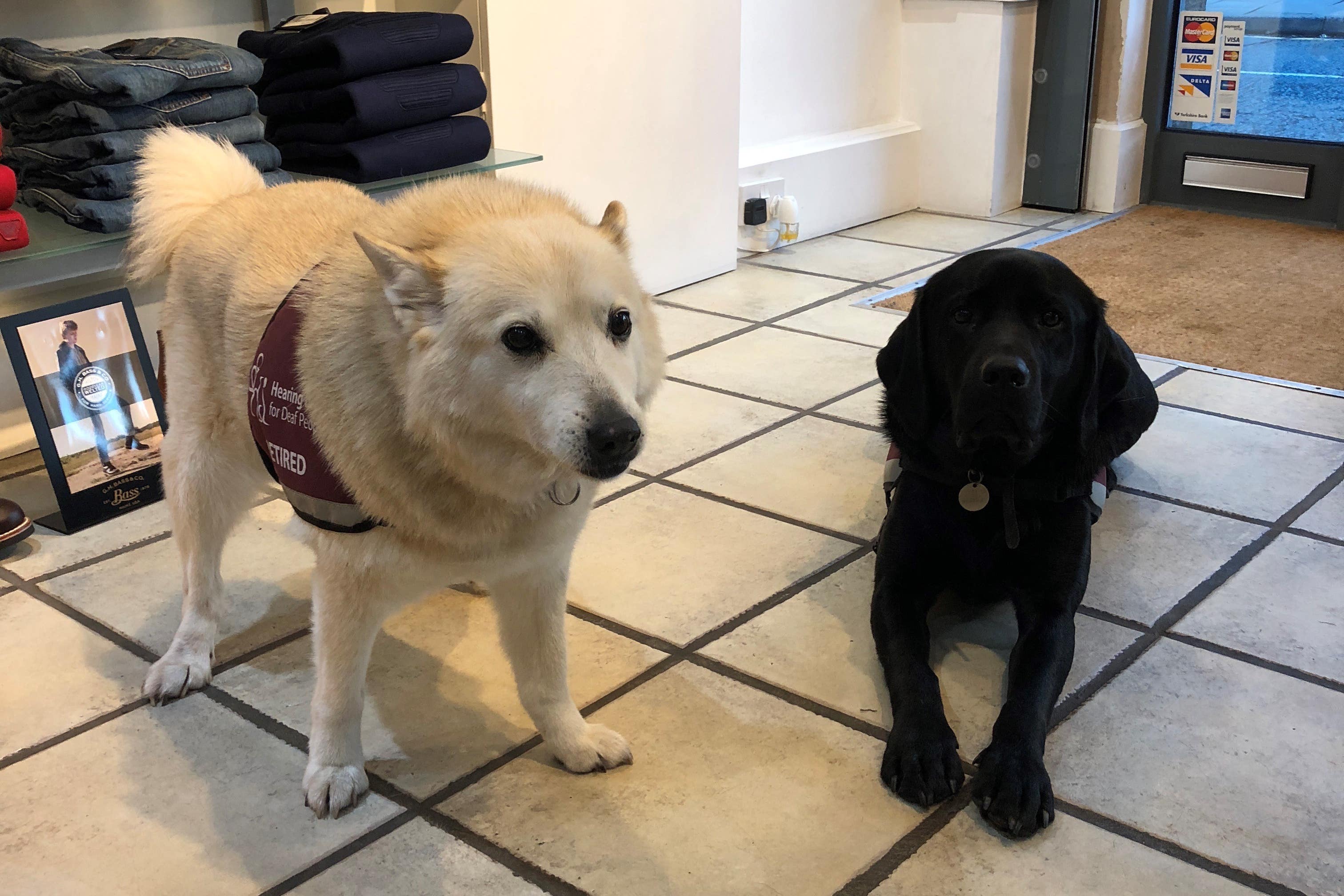Deaf man credits dogs for making him feel better after mental health struggles
Ian Joyce thanked his dogs for helping him to have a ‘more positive outlook’ in life.

Your support helps us to tell the story
From reproductive rights to climate change to Big Tech, The Independent is on the ground when the story is developing. Whether it's investigating the financials of Elon Musk's pro-Trump PAC or producing our latest documentary, 'The A Word', which shines a light on the American women fighting for reproductive rights, we know how important it is to parse out the facts from the messaging.
At such a critical moment in US history, we need reporters on the ground. Your donation allows us to keep sending journalists to speak to both sides of the story.
The Independent is trusted by Americans across the entire political spectrum. And unlike many other quality news outlets, we choose not to lock Americans out of our reporting and analysis with paywalls. We believe quality journalism should be available to everyone, paid for by those who can afford it.
Your support makes all the difference.A man suffering with hearing loss and his mental health has thanked his hearing dogs for making him feel “10-feet tall” and engaging him back into society.
Ian Joyce, who is from Staffordshire, was a premature baby, which he said caused his deafness.
He said that growing up in the 1970s presented several challenges for him since “technology wasn’t very sophisticated”.
“I carried a box receiver around my neck, connected to hearing aids. Whoever wanted to speak to me would have a smaller box and a microphone”, the 51-year-old said during Men’s Health Awareness Month, which falls in November.
“However, the hearing aids started to cause terrible ear infections. I got a really nasty infection that hospitalised me. After this, I was told no more hearing aids.
“It was a sudden, silent shock and one which I couldn’t cope with. I’d lost the ability to communicate. I withdrew into myself and away from the world.”
Mr Joyce suffered with several severe mental health problems as a result including isolation, depression and paranoia and lived a life that revolved around “pills and visits to healthcare professionals” until he came across a leaflet from deaf charity Hearing Dogs for Deaf People in 2004.
The charity trains hearing assistance dogs for deaf adults and children to carry out tasks including alerting a deaf person to sounds including the doorbell or a smoke alarm.
On June 25 2005 – “the day my life changed for the better” – he welcomed home his first hearing dog Hettie through the charity.
With Hettie, I felt ten feet tall. I started to look forward to the things I couldn’t do before, simple things like go for a cup of coffee and feel relaxed. I made new friends and found new interests.
“Hettie enabled me to be aware of sounds that I can’t hear, but the relationship ran much deeper than that”, he said.
“She gave me companionship, independence, peace of mind and most important of all, she gave me trust and removed my fear.
“With Hettie, I felt 10-feet tall. I started to look forward to the things I couldn’t do before, simple things like go for a cup of coffee and feel relaxed. I made new friends and found new interests.”
As Hettie neared retirement, Mr Joyce got a second hearing dog – Vectra – and looked after Hettie until she passed away, whom he thanked for changing him into a person with a “more positive outlook” in life.
He told the PA news agency: “Having Vectra is not just about sounds, it’s also about participation – the feeling of being involved not isolated, as deafness can be an isolating disability.
“He’s my shadow, my sidekick. If he wasn’t by me, it would feel very alien. I couldn’t imagine him not being there.”
My Joyce said that he hopes by sharing his story, it will help to encourage others to seek help if they are struggling with their mental health.
“For me getting a hearing dog gave me a focus but also got me engaged back into society to work with healthcare professionals, the mental health teams, access counselling, medication and so forth”, he said.
“There is help out there and life can get better, even for someone where it’s just total darkness right now.
“I hope this can bring a glimmer of light or plant a small seed that in the future that we can reach out and say ‘I need help’ without any pressure of the strong male stereotype.”
He added that he wants people to be “patient” with those with hearing conditions when trying to communicate with them, and not to “shout or mouth each syllable slowly”.
More information about the charity can be found here: https://www.hearingdogs.org.uk/